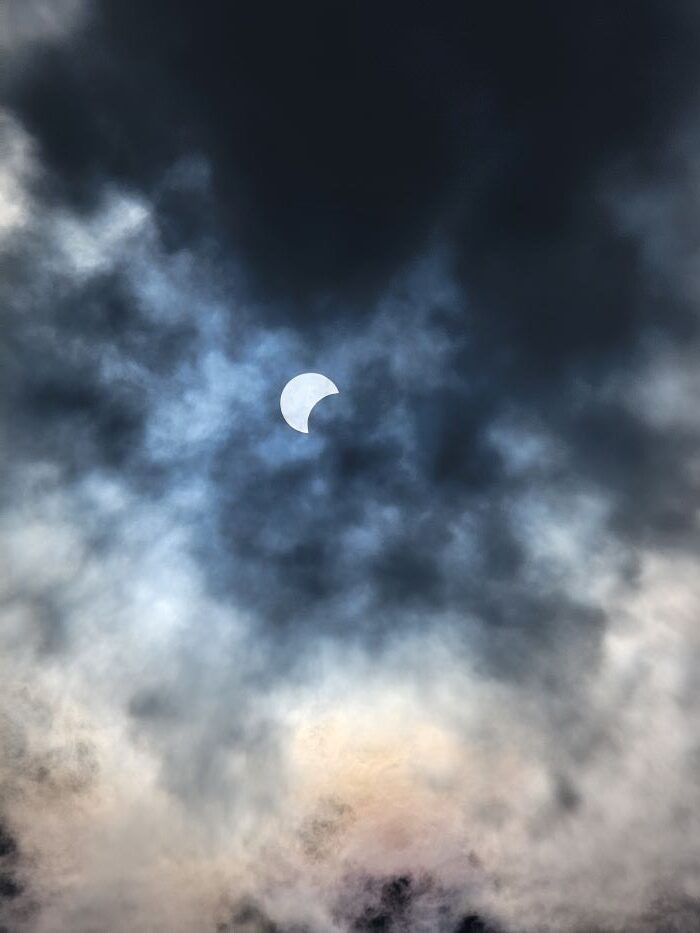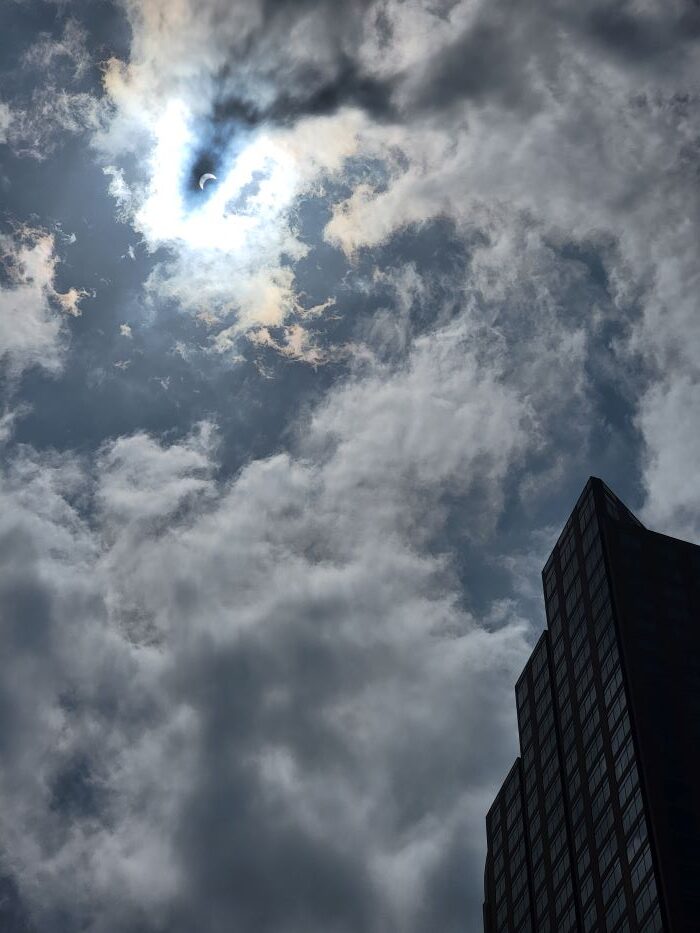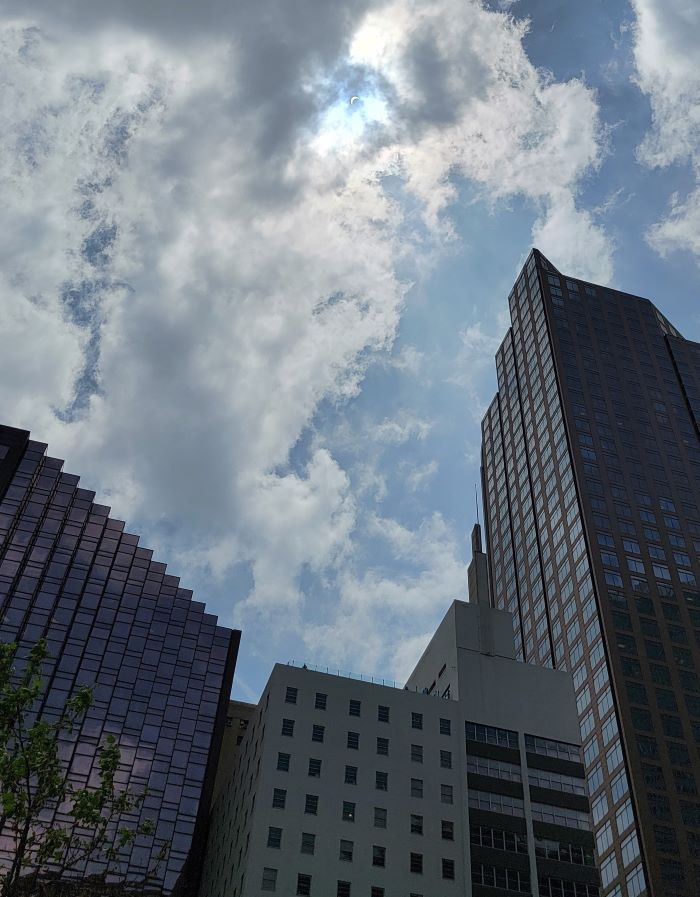A record of the total solar eclipse on 2024-04-08
I saw this eclipse in Dallas, which was just a domestic flight away. So this was much simpler than my other eclipse trips.

The weather was expected to be somewhat cloudy, which actually didn't bother me much. Dallas still had the best chances at clear skies among its surrounding cities, I had seen enough eclipses to be okay with the risk, and I knew that clouds could in fact enhance the viewing experience. And indeed, pictures like the following would not be possible in a perfectly clear sky:



This was the first time I'd seen the eclipse in a big city, and that added to the experience in a lot of ways. Much of the spectacle around an eclipse is in the context: how your familiar surroundings suddenly becomes strange. So it's not just about how dark it gets, or how you can see the stars: rather, everything around you changes, with the sky itself dominated by an unearthly black orb where the sun should be. Seeing all this happen in the world that you thought you knew - that's what makes the experience of totality what it is.
Indeed, people do ask me how dark it gets, and they seem unimpressed with my answer that it only gets as dark as twilight, and not as dark as midnight. But this is missing the point. The question focuses too much on one effect, and misses out on the totality of what it's like. I've also heard people say "it got pretty close to 100% where I live", or "I think I've seen an eclipse before". Again, they're completely missing the point: a partial eclipse - even one with 90+% coverage - is utterly different from the experience of totality. And if you had seen a total solar eclipse, you will never forget it for the rest of your life.
Even well-intentioned educational materials can fuel this kind of misconception, in going over the specific phenomena that you're supposed to observe: the fact that you can see the stars during totality, the shadow bands you can see in the last minutes of the partial phase, the pinhole camera effect you can see through the tree leaves, the shifting of the colors in the diminishing sunlight. All of these are worth observing, but they're not the whole experience. I've heard people say how it would be cool to observe this or that particular effect. I assure you, the first time you see a total eclipse, you will not be thinking much about such specifics: you will simply be transported to a new reality that no mind could have ever conceived, but for the fact you're now in it.
You may correctly infer that I'm somewhat frustrated by my inability to communicate just how awesome a total solar eclipse is. I have in fact had people tell me today that they didn't see the eclipse, because they were busy with work, or because they weren't feeling well, or some other such nonsense. On the other hand, everyone who has actually seen totality is unanimous in how awesome it was. None of them even use any kind of reserved or qualifying language: nobody says that it was "kinda nice", or "pretty cool", or "quite pretty". No, their descriptions are always in the superlative form: "incredible phenomenon", "so beautiful", "10/10", "absolutely amazing". One man actually described today's eclipse to me in such terms, then only afterwards mentioned - almost in passing - that he had proposed to his girlfriend during totality.
I've previously said that no picture can fully capture the phenomenon of totality. Indeed I had given up on it a long time ago. However, one of the effects of the eclipse is how it alters the behavior of animals, and you CAN capture this on camera. The following is how homo sapiens behave during totality. And given that we are herd animals who are unduly swayed by social proof, perhaps this may be my best attempt at communicating what I experienced.
See how people are compelled to rise to their feet at the approach of totality. Hear how the eclipse extracts from them involuntary exclamations of wonder and awe. Observe their chatter, laughter, and applause at its beauty. These are the obligatory salutes that we earthly creatures give to an otherworldly glimpse at the mind of the Creator - whether we know him or not. As I've said before, total solar eclipses reveal God's beauty to us in such a unique way, that I do not expect to see their equal for the rest of my life.
You may next want to read:
Leave a Reply
You must be logged in to post a comment.
Post Importance
Post Category
• humanities (26)
• current events (30)
• fiction (10)
• history (36)
• pop culture (14)
• frozen (8)
• math (58)
• personal update (19)
• logic (65)
• science (56)
• computing (16)
• theology (104)
• bible (39)
• christology (10)
• gospel (7)
• morality (23)
• uncategorized (2)